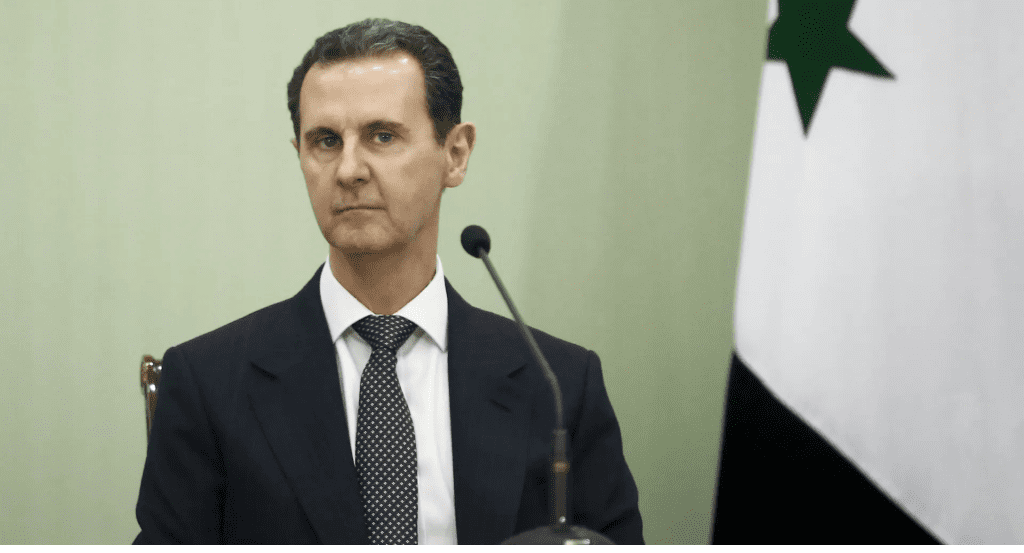The regime of Bashar al-Assad, which has held power in Syria for over two decades, has come to an abrupt end. Rebel forces, after years of conflict, successfully overran government strongholds, culminating in Assad’s ouster and forcing him into hiding. This marks a pivotal moment in Syria’s history, offering a glimmer of hope for opposition forces and raising questions about the nation’s future.
A Regime Born of Legacy
Bashar al-Assad, a trained ophthalmologist, ascended to power in 2000 following the death of his father, Hafez al-Assad, who had ruled Syria since 1971. His father’s regime was characterized by authoritarianism, strict control of the military, and an iron grip on the nation’s political landscape. When Bashar took over, there were initial hopes for reform. However, his rule quickly followed in his father’s footsteps, marked by oppressive policies and crackdowns on dissent.
The Assad family maintained its power through a combination of patronage, alliances with powerful families, and a loyal military apparatus. Bashar’s leadership style, however, was tested in 2011 when the Arab Spring uprisings swept through the Middle East.
The Syrian Civil War
The Syrian conflict began in 2011 when peaceful protests calling for democratic reforms were met with brutal violence by Assad’s security forces. This escalated into a full-blown civil war, dividing the country into factions loyal to Assad, opposition groups, and extremist organizations such as ISIS. The war devastated Syria, leaving hundreds of thousands dead and millions displaced.
International powers became deeply involved, with Russia and Iran backing Assad, while Western nations and regional players like Turkey supported opposition groups. Over time, Assad’s regime reclaimed significant territory, aided by relentless airstrikes and the use of chemical weapons, actions widely condemned as war crimes.
Despite international isolation and sanctions, Assad clung to power, often appearing defiant in the face of mounting opposition. His regime was accused of using torture, indiscriminate bombings, and mass starvation as tools of war.
The Rebellion’s Turning Point
The tide began to turn in late 2023, as opposition groups consolidated power and launched coordinated offensives against key government strongholds. Reports suggest that divisions within Assad’s inner circle weakened the regime. In the weeks leading up to his ouster, rumors swirled of discontent among military officials, with some defecting to the opposition.
The final blow came when rebels captured Damascus, Syria’s capital and the seat of Assad’s power. In a stunning development, Assad reportedly fled the city as rebel forces entered the presidential palace. Sources suggest he is seeking refuge in a foreign country, possibly under Russian protection, though his exact whereabouts remain unknown.
International Reactions
World leaders have reacted to the dramatic developments in Syria. U.S. presidential candidate Donald Trump commented that Assad’s fall marked “the end of an era,” calling for swift international action to stabilize the country. Meanwhile, Russian President Vladimir Putin, Assad’s staunch ally, has yet to make a formal statement, fueling speculation about Russia’s role in Assad’s escape.
Regional leaders, including Turkey’s Recep Tayyip Erdoğan, have expressed cautious optimism. While the fall of Assad is celebrated by many, concerns about who will fill the power vacuum dominate international discourse. The risk of Syria descending further into chaos is a pressing concern, as extremist groups may attempt to exploit the situation.
The Assad Legacy
Assad’s fall brings an end to a brutal chapter in Syrian history. His regime left a legacy of widespread human rights abuses, economic collapse, and a fractured society. Under his rule, entire cities were reduced to rubble, and Syria became a battleground for competing global powers.
The Assad family, once seen as an unshakable force in Middle Eastern politics, now faces an uncertain future. With Bashar in hiding and his regime dismantled, the Syrian people must grapple with the task of rebuilding a nation ravaged by conflict.
A New Era for Syria?
The coming days will be critical for Syria. Rebel leaders have called for unity among opposition factions and pledged to establish a transitional government. However, the challenges ahead are immense. Syria’s infrastructure lies in ruins, and millions of displaced citizens are eager to return home but face an uncertain future.
The international community is expected to play a crucial role in shaping Syria’s transition. Humanitarian aid, reconstruction efforts, and diplomatic support will be key in stabilizing the country. However, with diverse factions vying for power and deep-seated divisions among Syrians, achieving lasting peace will be a daunting task.
For many Syrians, the fall of Bashar al-Assad is a moment of triumph and relief, symbolizing the end of decades of oppression. Yet, it is also a reminder of the tremendous cost of the conflict and the long road to recovery that lies ahead.




















